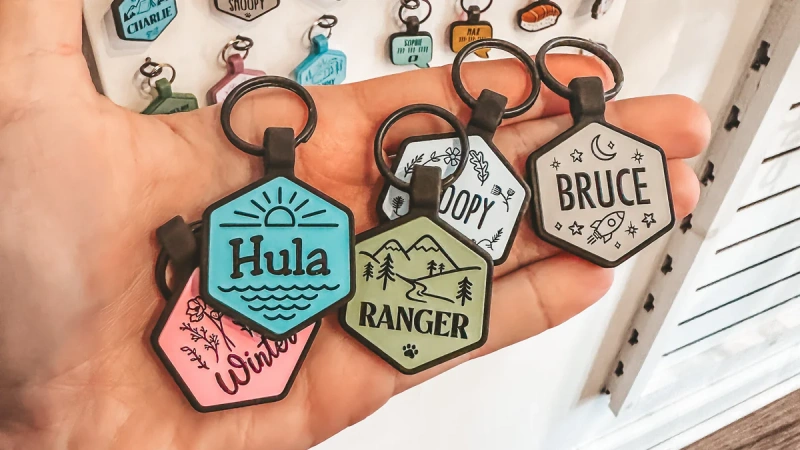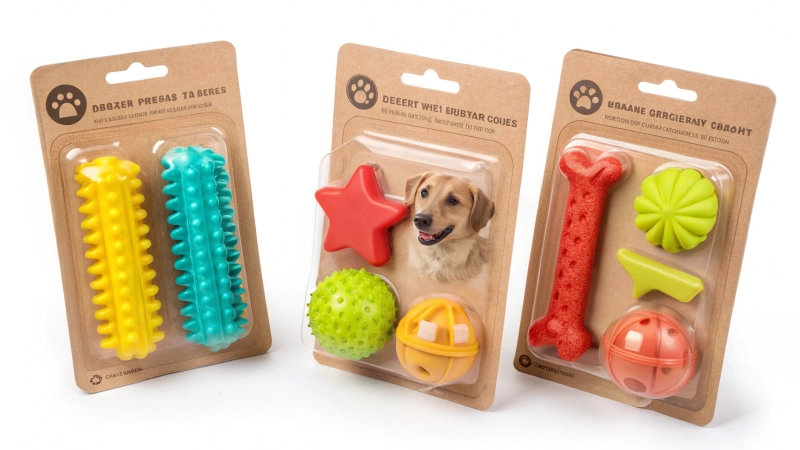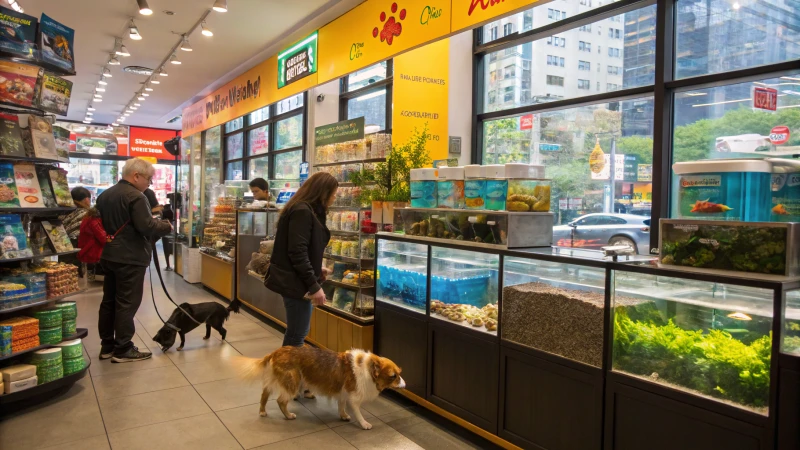
Starting a pet business in vibrant New York is like diving into a sea of endless opportunities and unique challenges.
To start a pet business in New York using Shopify and social media, I focus on defining my niche, setting up a Shopify store with effective SEO, and using platforms like Instagram and Facebook to engage and expand my audience.
When I first considered jumping into the pet business, I felt a mix of excitement and nerves. The thought of creating something special for pets and their owners was thrilling, but I knew I’d need a solid plan. Starting with niche identification seemed crucial—I wanted to offer something unique that truly resonated with pet lovers.
From there, setting up my Shopify store was like piecing together a puzzle. Choosing the right themes, adding those perfect product shots, and ensuring smooth payment systems were all part of the fun—and sometimes frustration! But seeing it all come together was incredibly rewarding.
Social media became my playground for creativity. Platforms like Instagram allowed me to share adorable pet photos and connect with fellow pet enthusiasts. I found that authentic engagement, like sharing personal stories or running cute contests, helped build a community around my brand. Each post felt like a step closer to realizing my dream of making a mark in the pet industry.
Shopify is essential for starting a pet business in New York.True
Shopify provides an easy-to-use platform to set up and manage online stores.
Instagram is ineffective for marketing a pet business.False
Instagram's visual platform is ideal for showcasing pets and engaging audiences.
How Do You Decide on a Niche for Your Pet Business?
Starting a pet business is like diving into a world of furry friends and endless possibilities. But how do you figure out where to focus in such a vast market?
To choose a niche for your pet business, think about what you’re passionate about and where your skills lie. Dive into market research to spot trends and unmet needs, then craft unique products or services that stand out. This ensures a business that’s not only profitable but also fulfilling.
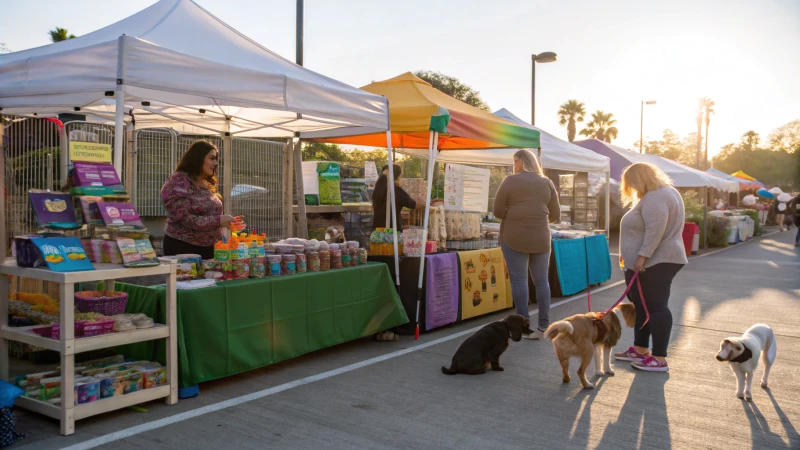
Identifying Your Interests and Expertise
Reflect on what truly excites you about pets. For me, it started with my childhood dog, Max. He was my first real responsibility and taught me the joy of caring for another being. Whether it’s pet grooming1, innovative products, or something else entirely, your passion will fuel your commitment.
Analyzing Market Demand
Research is like sniffing out the best trail. I remember using tools like Google Trends to track what people were buzzing about in the pet world. Eco-friendly products were on the rise, and it felt like the perfect opportunity to blend my love for pets with my concern for the environment.
Market Trends Table:
| Category | Trend | Growth Potential |
|---|---|---|
| Organic Pet Food | Increasing | High |
| Pet Tech Gadgets | Growing | Medium |
| Subscription Boxes | Steady | Low |
Exploring Unique Offerings
Standing out in the pet industry can be like finding that perfect spot for a new dog park—challenging but rewarding. Think about unique angles, like customizable products or services that others haven’t tapped into yet. Once, I considered pet wellness consultancy2 as a fresh twist.
Evaluating Competition and Gap Analysis
I often played detective, analyzing competitors to see where they thrived and where they stumbled. If everyone’s chasing the cat market, there might be room to explore more about dog-centric offerings or even exotic pets3.
Aligning with Target Audience Needs
Understanding your audience is like knowing your pet’s quirks—essential for a great relationship. Are they eco-conscious or looking for luxury items? Tailor everything from your product line to marketing strategy to resonate deeply with them.
Strategic Planning for Success
With your niche in place, it’s time to strategize. I crafted plans that aligned my love for unique pet products with business goals, ensuring everything from product development to sales tactics was in harmony. This approach paved the way for growth and satisfaction.
Organic pet food has high growth potential.True
Market trends indicate increasing interest in organic pet food.
Subscription boxes have the highest growth potential.False
The market trends table shows subscription boxes have low growth potential.
How Do You Create a Comprehensive Business Plan for Your Pet Store?
Opening a pet store can feel like a dream come true if you’re a fellow animal lover like me. But it all starts with a solid plan.
Creating a comprehensive business plan for your pet store involves identifying your niche, conducting market analysis, and defining your target audience. Ensure your plan includes financial projections, marketing strategies, and operational details.

Identifying Your Niche
When I first thought about opening my own pet store, I knew I had to find a niche that not only appealed to customers but also resonated with my passion. It’s like picking your favorite ice cream flavor; you want to stand out but also cater to what people love. Are you leaning towards everyday pet supplies4 like food and toys? Or maybe you’re drawn to offering unique services like grooming and training? There’s even the option of specialty products—think organic foods or custom accessories.
Understanding what makes you different helps define your target audience5 and aligns with their specific needs, laying the groundwork for your entire business strategy.
Conducting Market Analysis
This step reminded me of the first time I tried to bake cookies from scratch; I needed the right ingredients in the right amounts. Conducting a market analysis is like gathering those ingredients—you need to know the industry trends, who your competitors are, and who exactly your customers will be.
| Analysis Component | Description |
|---|---|
| Market Size | Estimate the overall market size in your region. |
| Key Competitors | Identify top competitors and their strengths. |
| Customer Demographics | Determine age, income level, and pet ownership. |
Using this data, you can develop a pricing strategy and select products that resonate with your audience.
Financial Projections
I remember the first time I had to set a budget for my dream vacation—it felt overwhelming at first, but breaking it down made it manageable. Your business plan is similar; include realistic financial projections to entice investors.
- Startup Costs: Think about initial expenses like rent, inventory, and marketing.
- Revenue Projections: Use industry benchmarks to forecast sales over the next 3-5 years.
- Break-even Analysis: Calculate when you’ll start seeing profits.
Consider using a financial planning tool6 to streamline this process.
Crafting Marketing Strategies
I once read that starting a business without marketing is like winking at someone in the dark—you know what you’re doing, but nobody else does. To make sure you’re seen, develop marketing strategies that draw in customers.
- SEO Optimization: Enhance visibility through optimized product descriptions and blog content.
- Social Media Engagement: Platforms like Instagram and TikTok are great for reaching pet owners.
- Collaborations: Partner with pet influencers7 to broaden your audience.
Operational Plans
Ensuring smooth daily operations is like keeping my own household running smoothly; it takes planning and organization.
- Staffing Requirements: Decide on the number of employees you’ll need and their roles.
- Inventory Management: Plan how you’ll source and manage stock effectively.
- Customer Service Policies: Establish protocols for handling customer inquiries and complaints.
Tools like inventory management software8 can help streamline these operations, making life just a bit easier.
Identifying a niche is the first step in a business plan.True
The context states identifying your niche is the first step.
Social media is ineffective for engaging pet store customers.False
The context suggests social media like Instagram is effective.
How do I set up my Shopify store effectively?
Hey there! Starting your own Shopify store is like embarking on a thrilling new adventure. Whether you’re dreaming of selling chic pet accessories or handcrafted home goods, these steps will guide you toward a successful launch.
To set up your Shopify store effectively, start by creating an account, choosing a theme, adding products, and setting up payment and shipping options. Enhance your store’s functionality with Shopify apps and optimize it for SEO to attract more customers.

Step 1: Sign Up and Select Your Plan
When I first decided to start my online store, signing up9 on Shopify felt like opening the first chapter of an exciting story. The key was to choose a pricing plan that fit my business vision and budget. Here’s what I learned: don’t just look at the monthly fee—think about what each plan offers in terms of features and transaction fees.
| Plan Type | Features | Monthly Fee |
|---|---|---|
| Basic | Basic online store features | $29 |
| Shopify | Complete online store | $79 |
| Advanced | Advanced report builder | $299 |
Step 2: Pick a Domain and Theme
Next, I had to select a domain name that truly resonated with my brand identity. It’s like naming a newborn—you want it to be memorable and reflective of your essence. Choosing a theme was equally crucial; it had to be stylish yet practical, ensuring it was mobile-friendly since so many of us shop on our phones.
Step 3: Add Products
Adding products was where creativity shined through. I remember spending hours perfecting the images and descriptions because I wanted customers to feel as excited about the products as I was. High-quality photos and detailed descriptions aren’t just nice to have—they’re essential for building trust. Don’t forget to categorize your products for better organization.
Step 4: Configure Payment and Shipping
Setting up payment gateways such as PayPal or Stripe felt like setting the table for a dinner party—everything needed to be just right for my guests (or customers!). Offering flexible shipping options, including free shipping for larger orders, seemed to strike a good balance based on your target market.
Step 5: Optimize for SEO
SEO optimization might sound technical, but it’s really about making sure your amazing products get the attention they deserve. Improve your store’s visibility by optimizing product descriptions with relevant keywords. Use meta tags—little touches that make a big difference in search engine ranking10.
Step 6: Leverage Shopify Apps
Finally, integrating apps from the Shopify App Store turned out to be a game changer for me. From email marketing tools to inventory management apps, these integrations made my operations smoother and helped me reach my customers more effectively.
Every step of setting up my Shopify store taught me something new about connecting with my audience and crafting an experience they would love. Dive in with an open mind and a willingness to adapt, and you’ll find your stride in the e-commerce world.
Shopify offers a free plan for new users.False
Shopify does not offer a free plan; it starts at $29/month.
SEO optimization is crucial for Shopify store visibility.True
SEO improves search engine ranking, increasing store visibility.
Ever thought of turning your pet passion into a thriving business? Let social media be your megaphone!
To supercharge your pet business using social media, dive into platforms like Instagram and TikTok popular among pet lovers. Share vibrant content, engage with influencers, and create interactive campaigns to skyrocket your visibility and connection.
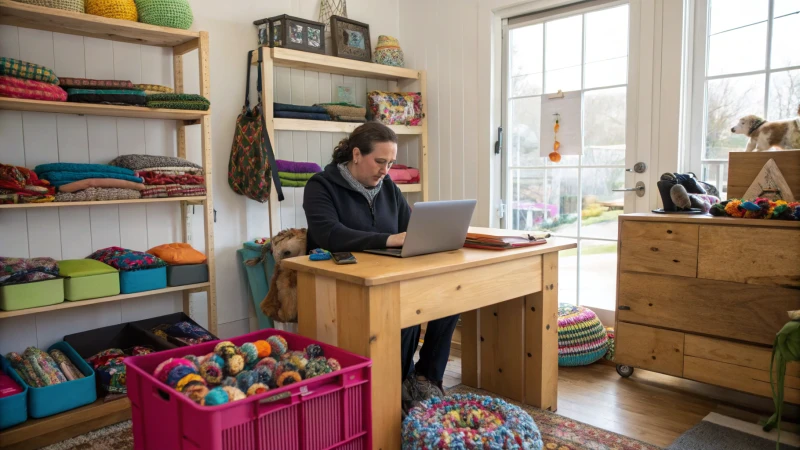
Identify the Right Platforms
When I first started exploring social media for my pet business, I found Instagram and TikTok to be absolute gems. Instagram’s all about those irresistible pet photos and videos that tug at your heartstrings. It’s perfect for showing off the latest in pet fashion or those adorable moments that your products help create. Then there’s TikTok, the playground for creativity where I get to unleash fun, short videos featuring pets being their quirky selves with my products.
Engaging Content Strategies
Creating engaging content is like inviting people into your world. I love sharing authentic content11 such as stories from customers about how my products have made their lives easier or their pets happier. There’s something magical about taking folks behind the scenes of my business—showing them the real hustle and heart that goes into each item. Live sessions where I answer pet care questions can also be a game-changer, helping me connect deeply with my audience. And trust me, having a content calendar keeps me from scrambling for ideas, ensuring I stay consistent.
Influencer Collaborations
Partnering with the right influencers can feel like finding a soulmate for your brand. I’ve worked with some amazing pet influencers who just get what I’m trying to do. Their followers are exactly the kind of passionate pet owners I want to reach. These partnerships have not only expanded my reach but also added a layer of trust because these influencers are genuinely invested in their pets’ well-being and only promote what they believe in.
Running Contests and Giveaways
There’s something about contests and giveaways that gets people buzzing. I remember launching my first photo contest—it was exhilarating to see all the creative entries flooding in! Encouraging pet parents to share snapshots of their furry friends using my products helped create a vibrant community vibe around my brand.
| Contest Ideas | Description |
|---|---|
| Photo Contest | Ask followers to share pictures of their pets with your product for a chance to win a prize. |
| Hashtag Challenge | Create a unique hashtag for users to post creative content, driving organic reach. |
Utilizing Paid Advertising
I’ve learned that a little investment in paid advertising on Facebook and Instagram can go a long way. These platforms offer incredible targeting options that let me zero in on pet lovers who are most likely to be interested in what I offer. Monitoring ad performance has been key to refining my approach and getting the best bang for my buck.
Monitoring and Adapting Strategies
Analyzing what’s working (and what isn’t) has become second nature to me now. Regularly diving into performance metrics and listening to customer feedback helps me tweak my strategies, ensuring I’m always aligned with what my audience truly wants. Tools like Google Analytics have been invaluable in tracking conversions and making data-driven decisions.
Instagram is ideal for showcasing pet products visually.True
Instagram's visual-centric nature makes it perfect for displaying vibrant pet product images.
TikTok is unsuitable for short, engaging pet videos.False
TikTok excels at hosting viral short videos, making it ideal for engaging pet content.
Conclusion
Learn how to start a pet business in New York using Shopify and social media by defining your niche, setting up an online store, and engaging with customers effectively.
-
Discover how personal passion can drive success in the pet industry by ensuring genuine dedication. ↩
-
Find creative business ideas to differentiate your pet offerings from competitors. ↩
-
Learn about niche opportunities in the less crowded exotic pets market segment. ↩
-
Discover how focusing on pet supplies can set your store apart from general retailers. ↩
-
Learn how to accurately define and reach your specific customer base. ↩
-
Find tools that simplify creating financial projections for startups. ↩
-
Explore successful collaborations with pet influencers to boost brand visibility. ↩
-
Identify software solutions that streamline inventory tracking and management. ↩
-
Learn how to quickly create a Shopify account to start building your online store. ↩
-
Discover effective SEO strategies to boost your Shopify store’s visibility and search rankings. ↩
-
Authentic content builds trust and fosters genuine connections with the audience, crucial for long-term engagement. ↩


